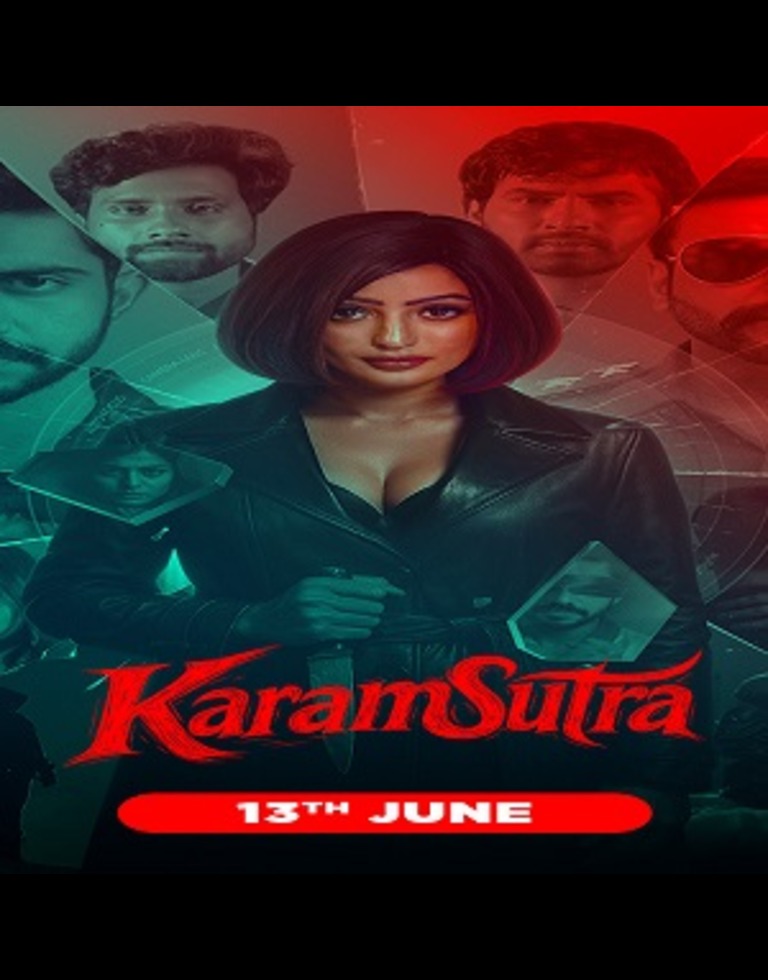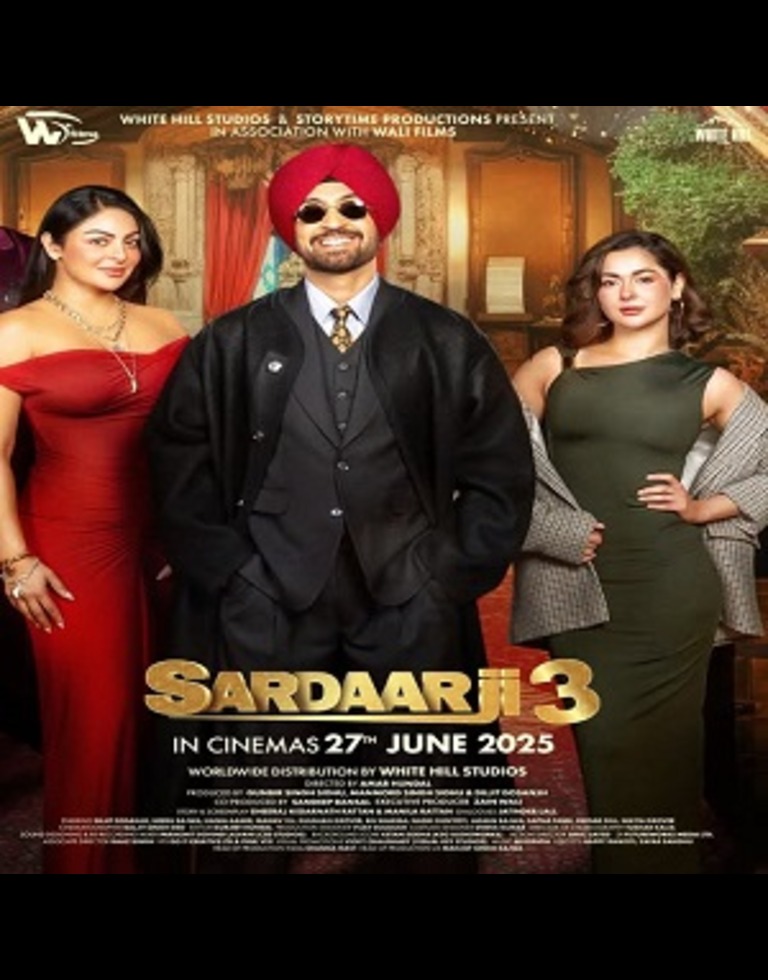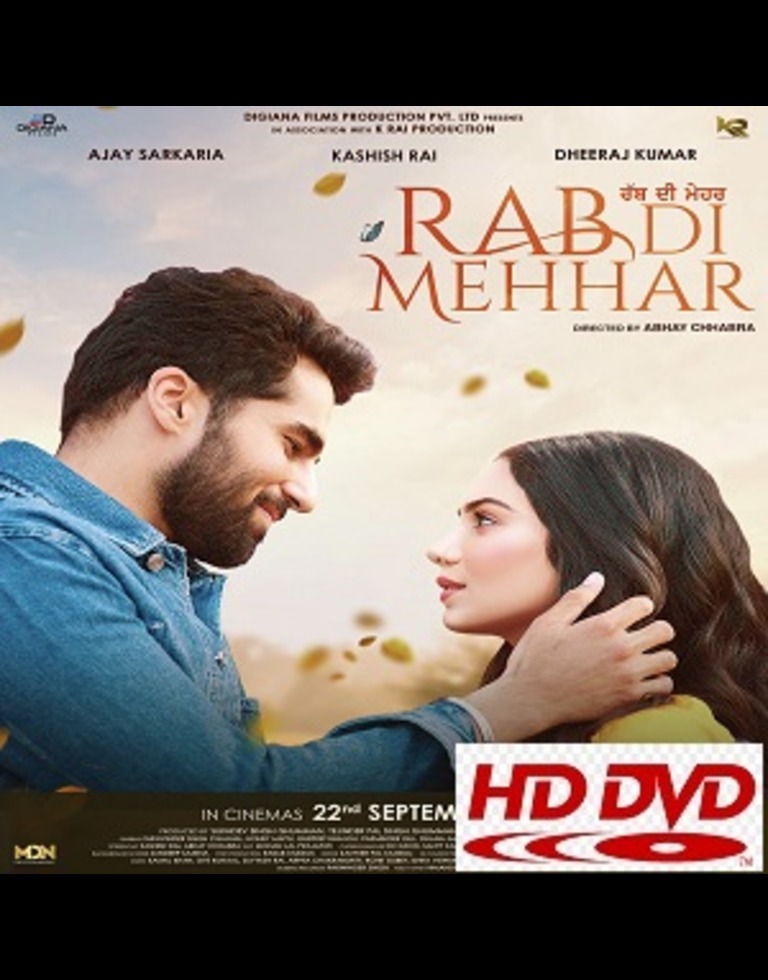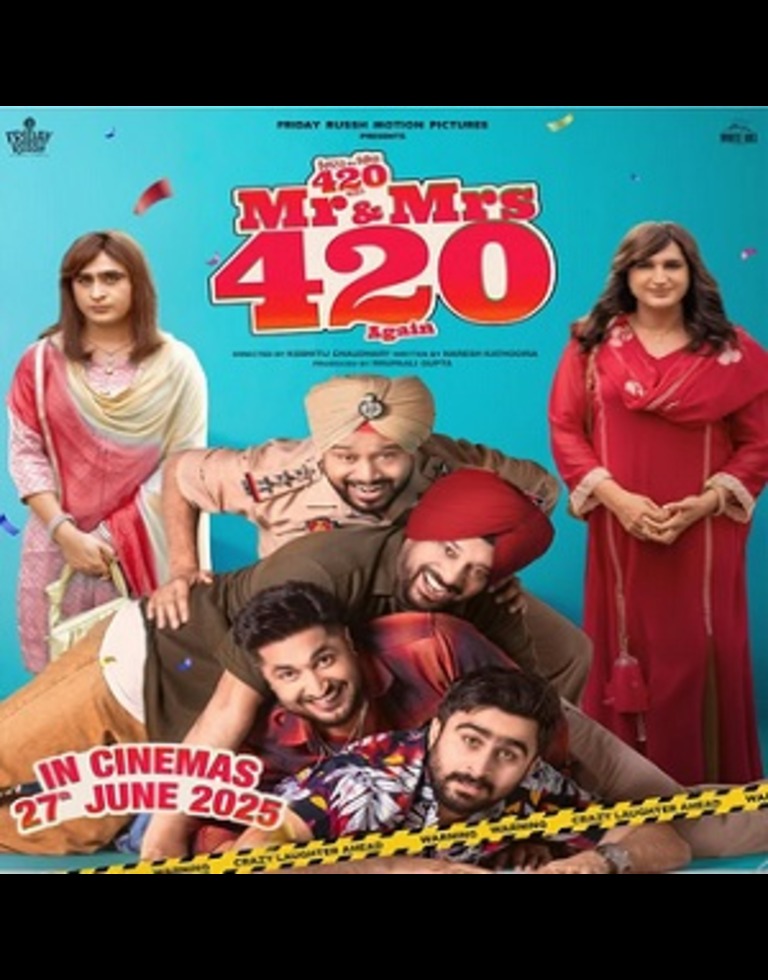
🎬 Overview & Premise
Karamsutra is an erotic‑thriller that blends sensual intrigue with psychological undercurrents. Released in early 2025, it centers on Ananya (played by Katrina Sharma), a celebrated philosophy professor whose seemingly perfect marriage conceals a deeper darkness. Her husband Raghav (Vijay Sethupathi) is a respected neurosurgeon, but beneath his calm exterior lies obsession and control. The film unfolds across opulent settings—especially the couple’s luxurious ancestral home—creating a lavishly cinematic backdrop for a story about betrayal, power, and desire.
🧭 Plot & Themes
The narrative opens with the couple’s 10th wedding anniversary, which should be a celebration—but Ananya’s secretive phone call and guilt-laced hesitations hint at something gone awry. Raghav, ever observant, senses this shift. What begins as an elegant marital drama slowly turns into a psychological chess game: who is betraying whom, and how far will either go?
Karamsutra explores themes of trust, fidelity, control, and self‑revelation, using intimacy as both a weapon and a refuge. The film forces viewers to ask: does love justify secrecy? And is liberation worth losing oneself?
🎭 Performances & Chemistry
-
Katrina Sharma (Ananya) delivers a nuanced, deeply layered performance. She’s compelling as a woman caught between intellectual independence and emotional entrapment. Moments where she hesitates before answer, or utters a lie with visible guilt, are quietly powerful.
-
Vijay Sethupathi (Raghav) is charismatic and chilling. His calm persona cloaks simmering possessiveness; even his silences—and lingering sighs—carry threat. Their chemistry is electric—charged with intellectual banter and physical tension—making their silent confrontations as gripping as the louder ones.
-
Supporting cast, including Richa Chadha and Rajat Kapoor, deepen the tension. A subplot involving a younger protégé of Ananya injects unsettling voyeurism, while Kapoor’s therapist role explores Raghav’s psyche with understated menace.
⚙️ Direction, Visuals & Tone
Director Anurag Basu frames Karamsutra with poetic tension. He lingers on close-ups of hands brushing, curtains billowing, or reflections in mirrors—implying that intimacy is as much about space as touch. Luxurious interiors, warm lighting, and classical music interweave with sudden sharp cuts, establishing an atmosphere that’s both elegant and oppressive.
The film uses silence and composure as narrative tools, leaving the audience uneasy during seemingly affectionate exchanges, knowing there’s always an undercurrent of unease.
🔊 Pacing & Structure
Karamsutra unfolds like a chamber piece. The first act is measured and deliberate, letting the psychological tension simmer. Around the midpoint, the pace accelerates with revelations of infidelity, secret meetings, and hired surveillance. The final act builds to a crescendo of betrayal, confession, and confrontation—ultimately leaving the original power dynamic completely inverted.
This structure rewards patient engagement, though some may find the early stretches too slow. However, once the stakes heighten, the steady buildup pays off.
✅ Strengths
-
Psychological depth: Intelligent writing explores intimacy as a battleground, not just a refuge.
-
Magnetic leads: Katrina and Vijay teeter between passion and control, delivering performances that anchor the film.
-
Artful tension: Cinematic techniques—sound, silence, visual design—create sustained unease.
-
Emotional honesty: Despite luxurious packaging, the core conflict—fear of losing oneself in love—remains grounded and resonant.
⚠️ Weaknesses
-
Slow first half: Those expecting immediate twists may find the early pacing too restrained.
-
Male gaze concerns: While mostly tasteful, a few lingering shots during seduction scenes feel pandering rather than purposeful.
-
Supporting roles underwritten: Nolan’s therapist and the protégé lack the depth required to match the leads’ complexity.
👥 Audience Reception
Viewer response has been mixed. Some admire its cerebral sensuality:
“One-time watch if you wanna pass your time.”
Others found the romantic suspense cliché:
“It really felt like reading a boring book.”
Yet many highlight the two leads’ chemistry:
“Somehow Katrina was actually good… Vijay Sethupathi has always been my goat.”
These polarized views reflect the film’s ambitions—it’s not designed to please everyone, but to provoke.




